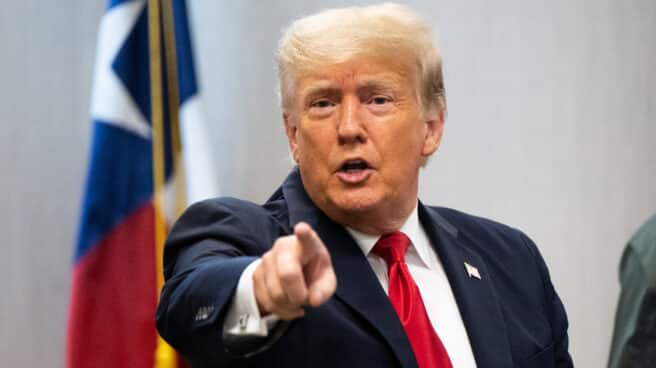Leftist former president Luiz Inácio Lula da Silva, 76, won Sunday with 48% of the vote against the far-right president, with 43%, but he was far from a comfortable victory as the polls predicted, which placed him victorious even in the first lap.
The five-point advantage left the definition open and projects weeks of an intense and aggressive campaign in a deeply divided country, analysts consulted by AFP agreed.
“We have to talk to all the people who didn’t vote for us in the first round,” Lula told reporters after a meeting with his political team in Sao Paulo.
“Lulinha peace and love is ready to talk with the whole world,” continued the leftist, who is also committed to the formation of a “bloc of Democrats” that defeats Bolsonaro in the ballot.
Bolsonaro wrote for his part that his project has “what is necessary to free Brazil from authoritarianism, blackmail and the injustice that outrages us so much.”
“The deepest change in the country has already begun! It is not the people who have to fear,” she wrote on Twitter.
The support of Simone Tebet, third with 4% of the votes, and Ciro Gomes, with 3%, will play a relevant role in the second round. Tebet promised that she would announce her position at the “right time”, while Gomes, a harsh critic of Lula and Bolsonaro, asked for time to speak out.
– Stock market on the rise –
As has happened in other recent key events, such as the election of Donald Trump in the United States, Brexit in Great Britain and the plebiscite of the peace agreement in Colombia, all in 2016, the main pollsters were completely wrong.
Instead, Sunday’s numbers corresponded with the “optimistic” scenario defended by the 67-year-old Bolsonaro campaign team, which leaves him with a chance of being re-elected.
The Sao Paulo stock market closed on Monday with a rise of 5.54%, a sign of the support of the economic community not only for Bolsonaro, but also for the new conservative configuration of Congress.
“Regardless of who wins the second round, they will have to govern with a Congress more oriented to the right, more liberal and pro-market, with great weight,” said economist Igor Macedo de Lucena.
– “Fierce dispute” –
Leandro Consentino, a political scientist at the Insper institute, predicts an “open end” and “an even situation” for both, with Bolsonaro showing strength in key states such as Rio de Janeiro, Sao Paulo and Minas Gerais, in the southeast of Brazil and which gather 40 % of the electoral register.
“It is the reflection of a very conservative country”, evaluated Mateus Alcantara, a 26-year-old publicist, one day after the election in Rio de Janeiro. “We are in a moment of enormous polarization and Bolsonarism is growing more and more.”
Bolsonaro has governed through a crisis, especially with a questionable management of the pandemic and a constant challenge to democratic institutions. In fact, he said that he expects a position from the armed forces on the transparency of the elections, after questioning the reliability of electronic voting.
He maintains solid support among the evangelical electorate, agribusiness and conservative sectors.
This Monday, he promised a Christmas bonus to the women beneficiaries of his social program Aid Brazil, which provides aid of 600 reais (110 dollars) to the most vulnerable, a segment that he seeks to conquer in the run-up.
While Lula, still under the shadow of the corruption scandals unveiled when the left was in power and which disappointed many of his followers, has the support of the popular classes, women and youth.
“The runoff promises to be a fierce dispute,” said Paulo Calmon, a political scientist at the University of Brasilia. “It will be an aggressive, low-level campaign.”

















